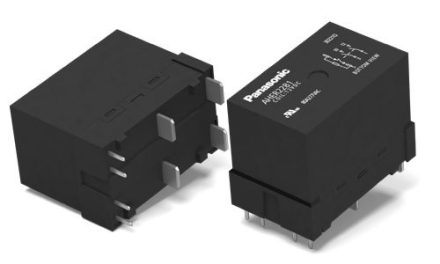 Omron has taken the G2RV industrial relay series to the next level, with the addition of a patented lockable test-switch mechanism that enables operators and engineers to test the functionality of a panel, machine or system, or to simulate an actuator when one or more modules are offline or have been removed. The test-switch has a rotating protection cover to prevent accidental operation and to enable operators to see that the switch is protected when viewed from a distance in, for example, a hazardous environment.
Omron has taken the G2RV industrial relay series to the next level, with the addition of a patented lockable test-switch mechanism that enables operators and engineers to test the functionality of a panel, machine or system, or to simulate an actuator when one or more modules are offline or have been removed. The test-switch has a rotating protection cover to prevent accidental operation and to enable operators to see that the switch is protected when viewed from a distance in, for example, a hazardous environment.
Having been designed from first principles, instead of being adapted from a PCB relay, Omron’s G2RV series is the only genuine slim industrial relay on the market. As a result, the G2RV offers a wide array of benefits to machine manufacturers and panel builders. Just 6mm wide, the relay is ideal for compact panels and equipment, yet it offers all of the durability and reliability required for industrial applications.
At the heart of the industrial G2RV relay is a strong mechanical pin with a large contact surface that ensures reliable connection and high conductivity between the socket and relay. The patented switch design with rotating protection cover is (almost) impossible to achieve in an adapted PCB relay.
The G2RV is a fully-featured industrial relay with a LED indicator, mechanical flag and transparent housing so that operating status and condition can be easily verified. It can be interfaced easily with PLCs, and with push-in terminals, wiring is both fast and reliable. A range of different models is available for switching loads up to 6A, with six coil voltages including universal current versions. Furthermore the series includes relays specifically designed to reliably switch sensitive loads like input signals rated 50 mA up to 30 VAC or 36VDC. There is a choice of accessories and cables, making these relays ideal for a wide variety of industrial applications.
As with all Omron products, the G2RV relay series with protected test-switch are manufactured to the highest quality, conforming to relevant international standards, including CE, VDE and cULus.


